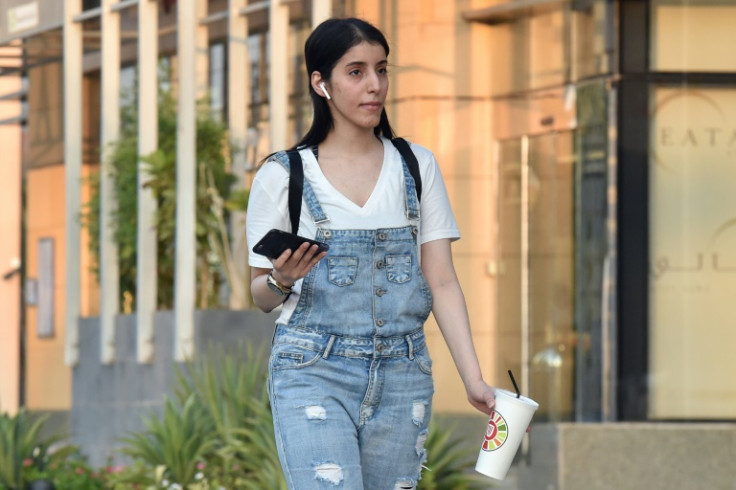
A Saudi court's decision to sentence fitness influencer Manahel al-Otaibi to 11 years in prison highlights what activists describe as a fierce crackdown on even vaguely critical online speech.
In the past two years the Saudi judiciary has "convicted and handed down lengthy prison terms on dozens of individuals for their expression on social media", the human rights groups Amnesty International and ALQST said in a joint statement on Tuesday.
These cases are generally handled by the Specialised Criminal Court, which was established in 2008 to try suspects accused of terrorism, and Saudi authorities do not often comment on them.
Here are the some of the most high-profile recent examples:
A mother-of-five in her late 40s, Qahtani was arrested in July 2021 largely in connection with critical posts on Twitter, since rebranded as X, according to a sentencing document provided by Democracy for the Arab World Now (DAWN), a Washington-based rights group.
She initially received a prison sentence of six-and-a-half years, however prosecutors appealed for a harsher sentence and got their wish: a 45-year term issued in mid-2022.
Qahtani's Twitter account, as identified in the sentencing document, features numerous posts criticising the government and others warning of attempts to arrest those behind public protests, which are not tolerated in Saudi Arabia.
The court found Qahtani had used Twitter "to challenge the religion and justice" of King Salman and Crown Prince Mohammed bin Salman, the kingdom's 38-year-old de facto ruler, according to the sentencing document.
It also says she incited "the activities of those who seek to disturb public order and destabilise the security of society and the stability of the state" by "publishing false and malicious tweets".
Qahtani did not have a large public profile and it is not clear how her anonymous Twitter account, which has fewer than 600 followers, attracted the attention of Saudi authorities.
A member of Sunni-ruled Saudi Arabia's Shiite minority, Shehab had been studying for a doctorate in Britain and was arrested in January 2021 while visiting on holiday.
In August 2022 she was sentenced to 34 years behind bars for aiding dissidents seeking to "disrupt public order" in the kingdom by relaying their tweets.
The mother-of-two, who mostly posted about women's rights to an account with just a few thousand followers, was also banned from travelling abroad for a further 34 years.
After Shehab's sentence was made public, the University of Leeds, where she was studying, said in a statement it was "deeply concerned" and trying to find ways to support her.
A government critic who denounced alleged corruption and human rights abuses on social media, Mohammed al-Ghamdi was sentenced to death last year.
The charges include conspiracy against the Saudi leadership, undermining state institutions and supporting terrorist ideology, sources briefed on the details of the verdict said.
The case against him was at least partly built on posts criticising the government and expressing support for "prisoners of conscience" like the jailed religious clerics Salman al-Awda and Awad al-Qarni, Mohammed's brother Saeed al-Ghamdi told AFP at the time.
Mohammed al-Ghamdi, a retired teacher in his 50s, was arrested in June 2022.
Human Rights Watch said in August 2023 it had seen court documents contending that Ghamdi "targeted the status of the King and the Crown Prince" and that the "magnitude of his actions is amplified by the fact they occurred through a global media platform, necessitating a strict punishment".
In an interview with Fox News that aired in September 2023, Prince Mohammed said he disapproved of the judgement and raised the possibility that Ghamdi might be spared death.
"I'm hoping that in the next phase of trials, the judge there is more experienced. And they might look at it totally different," Prince Mohammed said.
Otaibi, a 29-year-old blogger and fitness instructor, was arrested in November 2022.
Rights groups contend that law enforcement targeted her for challenging Saudi male guardianship laws and requirements for women to wear the customary body-shrouding abaya robe.
The Specialised Criminal Court sentenced her to 11 years in prison on January 9, but the sentence was only made public later in a Saudi submission to United Nations special rapporteurs inquiring about the case.
That document, dated January 24 and seen by AFP on Tuesday, says Otaibi "was convicted of terrorist offences that have no bearing on her exercise of freedom of opinion and expression or her social media posts".







